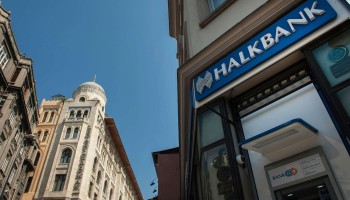 Prosecutors say that Arthur Bodovsky, 40, created an internet banking system the criminal underworld used to conceal their profits from authorities. Budovsky renounced his US citizenship in 2011 after establishing Liberty Reserve in Costa Rica – a country that does not regulate online businesses. Court documents state that he moved his business there following a 2006 conviction related to Gold Age, Inc., an unlicensed money transmitting business in the US.
Prosecutors say that Arthur Bodovsky, 40, created an internet banking system the criminal underworld used to conceal their profits from authorities. Budovsky renounced his US citizenship in 2011 after establishing Liberty Reserve in Costa Rica – a country that does not regulate online businesses. Court documents state that he moved his business there following a 2006 conviction related to Gold Age, Inc., an unlicensed money transmitting business in the US.
According to the US Department of Justice, Liberty Reserve handled money for more than a million users worldwide before being shut down by the US government in May 2013. More than 200,000 of those users are in the United States, and they have conducted about 55 million transactions worth more than US$6 billion using the system. These transactions are suspected to be proceeds of investment and credit card fraud, computer hackers, drug dealers, child pornographers, identity thieves and other criminals. OCCRP has reported on this case before, explaining exactly how Liberty Reserve operated.
Preet Bharara, US Attorney for the Southern District of New York, said Budovsky founded Liberty Reserve “to enable criminals in the United States and around the world to process illegal payments and to launder billions of dollars in crime proceeds anonymously and beyond the reach of US law enforcement.”
Budovsky, one of seven people charged in the 2013 indictment, was extradited to the US from Spain on Oct. 10. Four of the other co-defendants have already pleaded guilty: Vladimir Kats, Azzeddine el Amine, Mark Marmilev, and Maxim Chukharev. Two others have yet to be apprehended.
ABC News reports that on the day of Budovsky’s plea, Oct. 14, Assistant US Attorney Andrew Goldstein said that the evidence in this case encompasses 52 terabytes of data. Steven Frankel, Budovsky’s defense attorney, claims that the case is blown out of proportion. He emphasized that the co-defendants pled guilty to lesser charges, such as failing to register their business properly.
The Liberty Reserve investigation led to authorities raiding a number of locations in the US, Panama, Sweden, Switzerland and Costa Rica, where five luxury cars and Liberty Reserve computer servers were seized.




